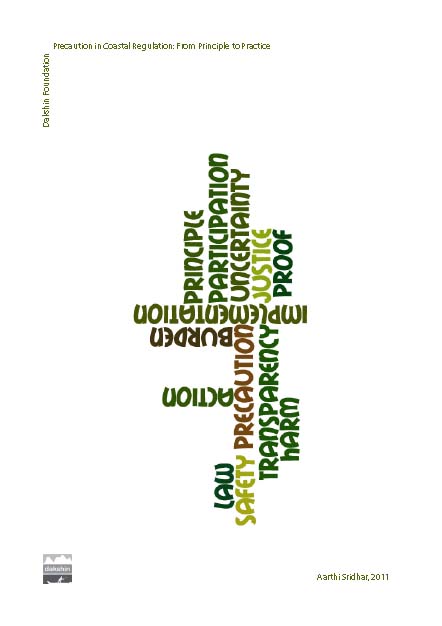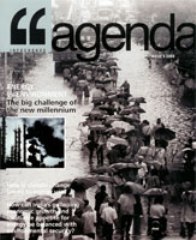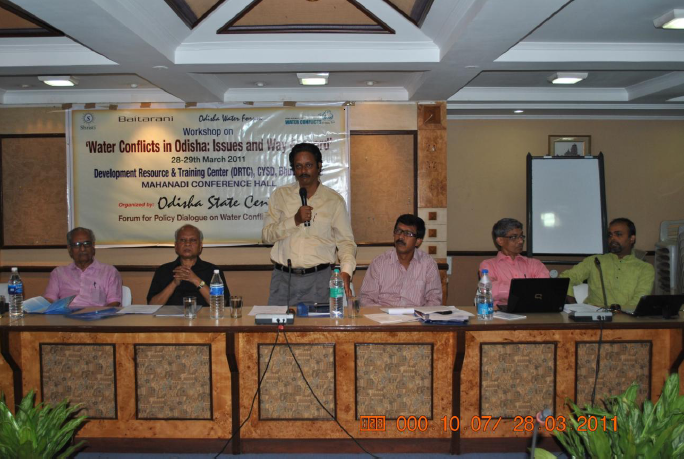Sustainability
Sharing the wealth of minerals – A report by Centre for Science and Environment on profit sharing with local communities
Posted on 03 Jul, 2011 08:57 AM The report submits the idea that proposal will go a long way in reducing poverty and deprivation in the mining affected areas. It states that the mining industry’s opposition to the proposal has no basis - statistics prove that sharing profits will not dent the industry’s profitability.
The report submits the idea that proposal will go a long way in reducing poverty and deprivation in the mining affected areas. It states that the mining industry’s opposition to the proposal has no basis - statistics prove that sharing profits will not dent the industry’s profitability.
The central government has come out with a draft Mines and Minerals (Development and Regulation) Bill, 2010 (MMDR Bill) to replace the 1957 Act. The draft bill which has been vetted by a GoM, includes this provision of sharing benefits. The CSE analysis comes out in strong support of this proposal, and clearly establishes how timely and necessary this provision is.
Mining companies and industry in general have been opposing the government’s recent proposal. Their contention is that this provision, if passed by Parliament, would drastically dent their profitability.
The water wheels of time: Micro hydro power in the Western Ghats of India
Posted on 28 Jun, 2011 09:50 AMInternational seminar on innovation, sustainability and development, National Institute of Science Technology and Development Studies, June 28 – 30, 2011, New Delhi
Posted on 27 Jun, 2011 11:21 AMOrganizer: National Institute of Science Technology and Development Studies (NISTADS)
Venue: NISTADS Conference Hall, K.S. Krishnan Marg, New Delhi
Topics:
- Critical reflections on the state of thinking on innovation in India
- Innovation manifestos
- Food and agriculture
- Medicines and technology
- Information and communication technology
- Low carbon innovations
- Grassroots innovations
- Indigenous knowledge
Mining havoc: Impact of mining on water resources in Goa - Article from Dams, Rivers and People
Posted on 25 Jun, 2011 02:02 PM
Pumping of water from Cavrem Sheikh Salim mine, severely lowering groundwater table in the village
Image courtesy: Sebastian Rodriguez, Mand Goa
Workshop on 'Sustainable environment, media and youth', Centre for Media Studies, June 23, 2011, Hyderabad
Posted on 22 Jun, 2011 01:26 PMOrganizers:
- Centre for Media Studies (CMS)
- Forum for Better Hyderabad
Venue: Hyderabad Press Club, Somajiguda, Hyderabad
Precaution in coastal regulation - From principle to practice – A report by Dakshin Foundation
Posted on 21 Jun, 2011 11:45 AM The decision to act or not act, and further how to act in the face of unknowns or uncertainties is the subject matter of the precautionary principle (PP). It is against this historical backdrop of unknowns in environmental governance that the present study on the precautionary principle was conducted.
The decision to act or not act, and further how to act in the face of unknowns or uncertainties is the subject matter of the precautionary principle (PP). It is against this historical backdrop of unknowns in environmental governance that the present study on the precautionary principle was conducted.
The present framework for environmental governance provides a number of areas where precaution can and must be applied. In addition to these areas, the present report is the outcome of a descriptive study that shows the extent to which key elements of the precautionary principle are embedded in the specific case of two environmental laws related to coasts. The study examines key areas of the clearance continuum (law-making, clearance and monitoring) through a single broad question: To what extent is the approach of precaution embedded in decision-making under the CRZ Notification 1991 and the Water Act, 1974?
Sridhar attempted to examine this question on a continuum that examines a) the text of the law, b) the conditions under which projects are cleared or rejected and c) issues related to the monitoring of these conditions. The Asia and Pacific Workshop Report of the Precautionary Principle Project declared that there are both explicit and implicit uses of the precautionary principle. It states that there are some instances where the PP’s application is explicit and unambiguous whereas in other decisions the PP is implicit. They also raise an important point that to actually determine whether a decision was indeed precautionary or not (where it is not explicit) requires an examination of the context and motivations for decisions and management interventions.
"Climate change" - Understanding the connections with energy use, and how India's galloping economic growth and insatiable appetite for energy can be balanced with environmental security?
Posted on 18 Jun, 2011 12:52 AM
Introduction: Energy versus emissions: The big challenge of the new millennium
By Rakesh Kalshian
To maintain its economic growth rate of 8-10%, India needs all the energy it can get. But the momentum of economic growth overrides crucial environmental concerns.
Hotting up: The science and politics of climate change
By Aditi Sen
The world is hotting up. Climate systems are changing. The 1990s were the hottest decade ever, sea levels rose by 10-20 cm during the 20th century, and atmospheric carbon dioxide levels are 31% higher than in 1750.
Tearing through the water landscape - Evaluating the environmental and social consequences of POSCO project in Odisha - A report by ESG
Posted on 08 Jun, 2011 03:34 PMBased on evidence from this inquiry, the study presents a critical analysis of the environmental and social impact information of POSCO's steel-power-port components to expose the fact that regulatory agencies have inadequate information on the short term and long term impacts of the project on the basis of the information that the company supplied to them. It also provides historical evidence
Analysis of TAC guidelines and decisions in recent meetings' - Dams, Rivers and People - Newsletter of SANDRP for April, May 2011
Posted on 27 May, 2011 01:26 PM
Newsletter of South Asia Network on Dams, Rivers and People (SANDRP) for April - May 2011 (Volume 9 Issue 3-4), focuses on the following topics.
- Analysis of TAC guidelines and decisions in recent meetings
The Advisory Committee in the Union Ministry of Water Resources for consideration of techno-economic viability of Irrigation, Flood Control and Multi Purpose Project Proposals (TAC in short) is supposed to discuss the techno-economic viability of the irrigation, flood control and multi-purpose project proposals as per the Resolution published in the Union of India Gazette Notification No. 12/5/86-P-II dated Nov 27, 1987.
Proceedings of 'Water Conflicts in Odisha : Issues and way forward' - Organised by Odisha State Centre of the Forum for Policy Dialogue on Water Conflicts in India - 28th - 29th March 2011, Bhubaneswar
Posted on 27 May, 2011 12:48 PM
Development Resource & Training Centre (DRTC), CYSD, Bhubaneswar:
A 2-days Workshop on “Water conflicts in Odisha: Issues and way forward” has been organized during 28th – 29th, March, 2011 at Bhubaneswar by ‘Odisha State Centre’ of the ‘Forum for Policy Dialogue on Water Conflicts in India’. Environmental activists, thinkers, academicians, Government Officials, Farmer leader’s and Civil Society Organizations from different parts of the state participated in the workshop along with members of the National Steering Committee of Forum to discuss about the ongoing and emerging water conflicts in different geographies of the state.





